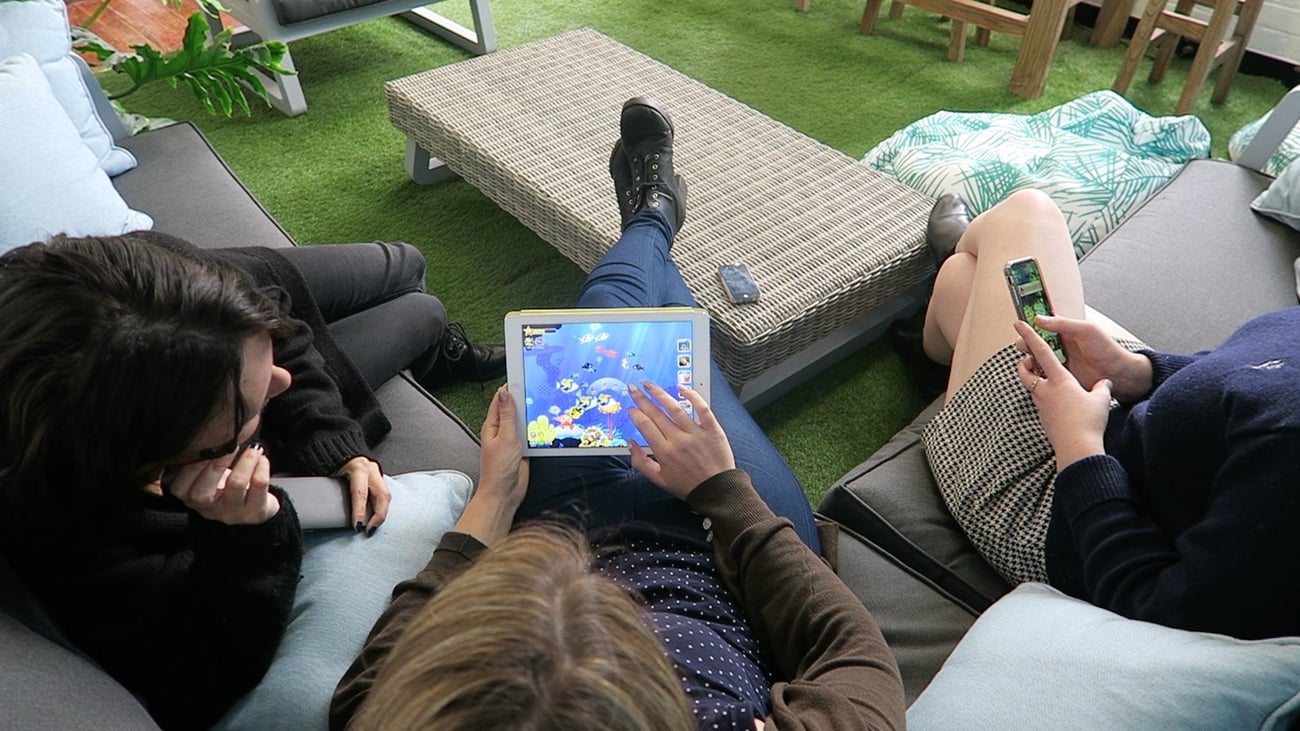Runaway’s #GirlsBehindTheGames campaign for games industry equality takes off with worldwide support

In the lead-up to International Women’s Day (which, of course, is March 8), Runaway are hosting a Twitter take-over for the #GirlsBehindTheGames campaign – a campaign which has gone viral.
Starting on Friday (New Zealand time), Capcom kicks off the Twitter take-over. The idea is to start a serious conversation about the changes that are needed to make the games industry a more inclusive, more equal place for everyone, no matter their background. Some of the world’s largest games companies are taking part, including the likes of BioWare, EA, Dinosaur Polo Club, and more.




As Idealog reported last month, the #GirlsBehindTheGames campaign calls to promote gender parity and diversity within the gaming industry, through positive media stories and social content about inspiring women in tech. In the lead up to International Women’s Day, Runaway are creating inspiring videos and content presented by the women of Runaway, sharing their experiences and advice to help promote women in the gaming industry. The campaign has been noticed by the likes of Prime Minister Jacinda Ardern, who in January visited Runaway in Dunedin and tweeted about the work they’re doing.

New Zealand Prime Minister Jacinda Ardern (centre) visiting Runaway’s Dunedin offices in January.
“Over the past two years more and more game studios have started talking openly about the importance of hiring a diverse staff,” explains Runaway creative director Emma Johansson. “There have been discussions on the importance of designing your games with cultural diversity in mind rather than resorting to stereotypes and old clichés. It seemed to me that over the last years the industry has finally realised that there is not only a large audience and demand for different types of games but also money to be made. Still, the statistics show that diversity IS an issue in this industry.”


Johansson says that’s where Runaway comes in. “For the past eight years at Runaway we have designed games for an alternative demographic that focus on nurture, relaxation and care rather than competition, status and adrenaline,” she explains. “We have had inclusion, mentorship and female leadership as an integral part of our growth strategy, and because of this Runaway is close to gender parity (with 10 of 26 staff female), and we have women occupying the only two senior leadership roles – as managing director and creative director. We are crushing the glass ceiling and we are walking the walk and I’m really proud of that! The original seed of #GirlsBehindTheGames grew from us realising that our position as a diverse studio wasn’t ‘the norm’ – but we want it to be! We wanted to share our story as a positive example on how great diversity within a studio can be.”
Check out this podcast with Runaway’s Zoe Hobson and Emma Johansson on VR, feminism and gaming in New Zealand:
With #GirlsBehindTheGames, Runaway is also offering mentorship to women, writing articles promoting the great work that women do in tech, planning sponsorship for women entering computer science and guest speaking at local schools. Runaway managing director Zoe Hobson says there’s a reason for such a multi-platform approach. “The lack of women working in the industry relates to so many factors,” she explains. “One, women in the industry aren’t supported enough – they hit ‘glass ceilings,’ they are discounted, discouraged and disenfranchised. We wanted to address that, and something we felt WE could contribute as a positive action was to offer mentorships to try and lift women up, to support them and help them thrive and grow.
“Two, women are underrepresented in the industry statistically, and that under-representation is made worse by a lack of visibility within media. Writing about and sharing great work done by women in tech can help make the women in our industry visible – and with visibility comes empowerment, normalisation and inspiration.
“Three, sponsorship for women in computer science came from our personal experience – we found out recently there wasn’t a single woman enrolled in the games paper at our local university. That really upset us, and was part of what triggered this whole campaign. We believe in taking action – so instead of sitting here feeling upset about women not taking the paper, we decided to talk to the tertiary provider, ask if we could provide sponsorship for women and ask if we could guest lecture within the department to normalise women in the industry and help those taking courses to feel supported.
“And four, another contributing factor to the lack of diversity in our industry can be linked to parents’, teachers’ and society’s influence on girls at a young age. If girls feel like tech or gaming or STEM careers aren’t an option for them, they won’t pursue those subjects or those careers. By guest speaking at schools, we hope to inspire young girls to follow their dreams and not exclude any career path. So, in summary – there are a lot of factors that contribute to a lack of diversity. The factors that we’ve chosen to take positive action on are only a small handful – and our actions themselves may be small – but we believe in taking those actions to shape the world in a more positive way.”

Zoe Hobson and Emma Johansson.
The #GirlsBehindTheGames campaign aligns with many of the same goals of “Change The Game” campaign from Google. There is also a #GirlsBehindTheGames website, a Twitter page, and of course the #GirlsBehindTheGames hashtag.
As Johansson says: “#GirlsBehindTheGames can be a resource for HR, investors and journalists to find women’s voices. There are lot of us out there so no excuse to say that it’s too hard to find qualified women in gaming!”
With so many large and influential games companies getting behind #GirlsBehindTheGames, here’s to hoping that visibility only increases.








